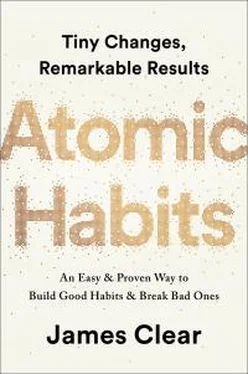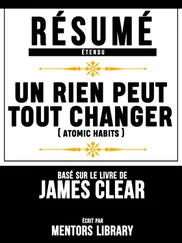Obtain food and water
Find love and reproduce
Connect and bond with others
Win social acceptance and approval
Reduce uncertainty
Achieve status and prestige
A craving is just a specific manifestation of a deeper underlying motive. Your brain did not evolve with a desire to smoke cigarettes or to check Instagram or to play video games. At a deep level, you simply want to reduce uncertainty and relieve anxiety, to win social acceptance and approval, or to achieve status.
Look at nearly any product that is habit-forming and you’ll see that it does not create a new motivation, but rather latches onto the underlying motives of human nature.
Find love and reproduce = using Tinder
Connect and bond with others = browsing Facebook
Win social acceptance and approval = posting on Instagram
Reduce uncertainty = searching on Google
Achieve status and prestige = playing video games
Your habits are modern-day solutions to ancient desires. New versions of old vices. The underlying motives behind human behavior remain the same. The specific habits we perform differ based on the period of history.
Here’s the powerful part: there are many different ways to address the same underlying motive. One person might learn to reduce stress by smoking a cigarette. Another person learns to ease their anxiety by going for a run. Your current habits are not necessarily the best way to solve the problems you face; they are just the methods you learned to use. Once you associate a solution with the problem you need to solve, you keep coming back to it.
Habits are all about associations. These associations determine whether we predict a habit to be worth repeating or not. As we covered in our discussion of the 1st Law, your brain is continually absorbing information and noticing cues in the environment. Every time you perceive a cue, your brain runs a simulation and makes a prediction about what to do in the next moment.
Cue: You notice that the stove is hot.
Prediction: If I touch it I’ll get burned, so I should avoid touching it.
Cue: You see that the traffic light turned green.
Prediction: If I step on the gas, I’ll make it safely through the intersection and get closer to my destination, so I should step on the gas.
You see a cue, categorize it based on past experience, and determine the appropriate response.
This all happens in an instant, but it plays a crucial role in your habits because every action is preceded by a prediction. Life feels reactive, but it is actually predictive. All day long, you are making your best guess of how to act given what you’ve just seen and what has worked for you in the past. You are endlessly predicting what will happen in the next moment.
Our behavior is heavily dependent on these predictions. Put another way, our behavior is heavily dependent on how we interpret the events that happen to us, not necessarily the objective reality of the events themselves. Two people can look at the same cigarette, and one feels the urge to smoke while the other is repulsed by the smell. The same cue can spark a good habit or a bad habit depending on your prediction. The cause of your habits is actually the prediction that precedes them.
These predictions lead to feelings, which is how we typically describe a craving—a feeling, a desire, an urge. Feelings and emotions transform the cues we perceive and the predictions we make into a signal that we can apply. They help explain what we are currently sensing. For instance, whether or not you realize it, you are noticing how warm or cold you feel right now. If the temperature drops by one degree, you probably won’t do anything. If the temperature drops ten degrees, however, you’ll feel cold and put on another layer of clothing. Feeling cold was the signal that prompted you to act. You have been sensing the cues the entire time, but it is only when you predict that you would be better off in a different state that you take action.
A craving is the sense that something is missing. It is the desire to change your internal state. When the temperature falls, there is a gap between what your body is currently sensing and what it wants to be sensing. This gap between your current state and your desired state provides a reason to act.
Desire is the difference between where you are now and where you want to be in the future. Even the tiniest action is tinged with the motivation to feel differently than you do in the moment. When you binge-eat or light up or browse social media, what you really want is not a potato chip or a cigarette or a bunch of likes. What you really want is to feel different.
Our feelings and emotions tell us whether to hold steady in our current state or to make a change. They help us decide the best course of action. Neurologists have discovered that when emotions and feelings are impaired, we actually lose the ability to make decisions. We have no signal of what to pursue and what to avoid. As the neuroscientist Antonio Damasio explains, “It is emotion that allows you to mark things as good, bad, or indifferent.”
To summarize, the specific cravings you feel and habits you perform are really an attempt to address your fundamental underlying motives. Whenever a habit successfully addresses a motive, you develop a craving to do it again. In time, you learn to predict that checking social media will help you feel loved or that watching YouTube will allow you to forget your fears. Habits are attractive when we associate them with positive feelings, and we can use this insight to our advantage rather than to our detriment.
HOW TO REPROGRAM YOUR BRAIN TO ENJOY HARD HABITS
You can make hard habits more attractive if you can learn to associate them with a positive experience. Sometimes, all you need is a slight mind-set shift. For instance, we often talk about everything we have to do in a given day. You have to wake up early for work. You have to make another sales call for your business. You have to cook dinner for your family.
Now, imagine changing just one word: You don’t “have” to. You “get” to.
You get to wake up early for work. You get to make another sales call for your business. You get to cook dinner for your family. By simply changing one word, you shift the way you view each event. You transition from seeing these behaviors as burdens and turn them into opportunities.
The key point is that both versions of reality are true. You have to do those things, and you also get to do them. We can find evidence for whatever mind-set we choose.
I once heard a story about a man who uses a wheelchair. When asked if it was difficult being confined, he responded, “I’m not confined to my wheelchair—I am liberated by it. If it wasn’t for my wheelchair, I would be bed-bound and never able to leave my house.” This shift in perspective completely transformed how he lived each day.
Reframing your habits to highlight their benefits rather than their drawbacks is a fast and lightweight way to reprogram your mind and make a habit seem more attractive.
Exercise.Many people associate exercise with being a challenging task that drains energy and wears you down. You can just as easily view it as a way to develop skills and build you up. Instead of telling yourself “I need to go run in the morning,” say “It’s time to build endurance and get fast.”
Finance.Saving money is often associated with sacrifice. However, you can associate it with freedom rather than limitation if you realize one simple truth: living below your current means increases your future means. The money you save this month increases your purchasing power next month.
Читать дальше




![Джеймс Клир - Атомные привычки [Как приобрести хорошие привычки и избавиться от плохих]](/books/403243/dzhejms-klir-atomnye-privychki-kak-priobresti-horosh-thumb.webp)



